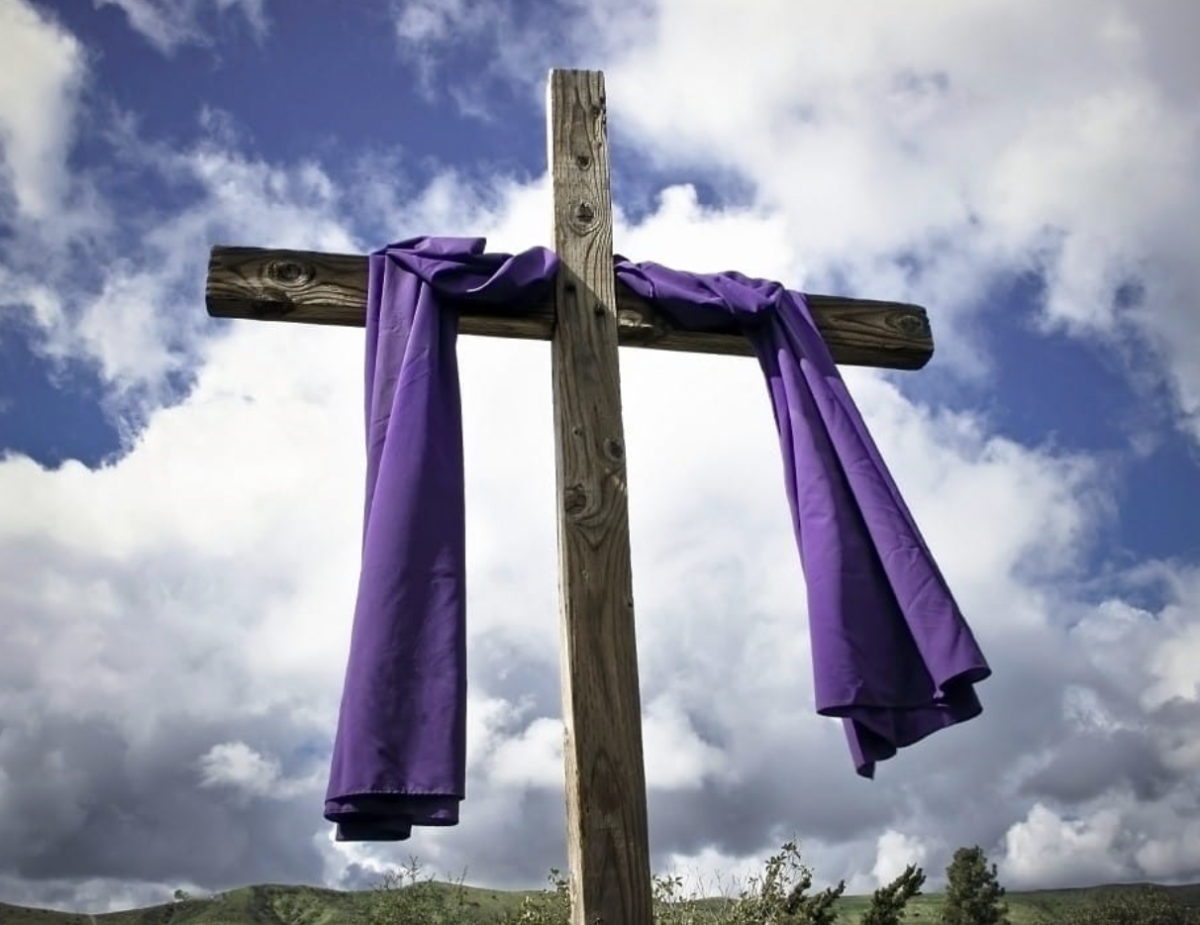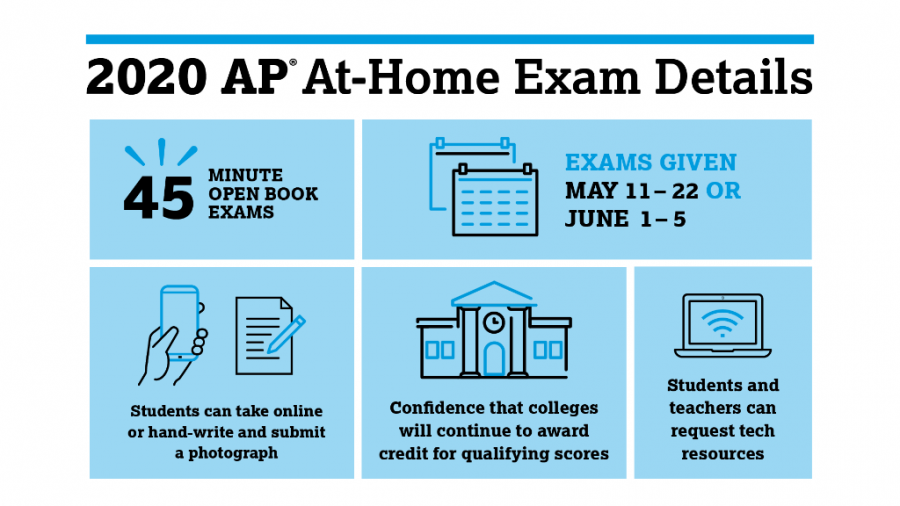Advanced Pandemonium, 2020 Edition
With the coronavirus preventing at-school testing, the College Board has significantly altered their tests for 2020.
April 29, 2020
The COVID-19 pandemic has cancelled a number of traditional school events–awards night, prom, graduation–but not AP exams. However, given the circumstances, the College Board has altered their exams to a unique testing format in what they call “the first time in AP history” (College Board).
Typical AP exams usually consist of two major components: multiple choice and free response questions (FRQs). However, in light of the lack of controlled testing conditions, AP exams will only have FRQs this year, reducing the duration of the exams from two to three hours to only about fifty minutes. According to the College Board, each exam will have two FRQ questions, each with subparts; the first question will be thirty minutes, and the second question twenty, with five minutes from each question encouraged to be dedicated to submitting answers.
In addition to reducing the extensiveness of the AP exams, the College Board has also reduced the content of each exam itself. According to the organization, given the premature closings of schools due to the coronavirus, many teachers were not able to properly complete their curriculum. In response, the College Board decreased the amount of required curriculum for each subject. Students should review exactly which material they will be tested on in order to maximize the effectiveness of their studying.
However, they will still continue to discuss the “skipped” content by releasing free instructional videos from AP teachers across the country. These videos are available on the College Board YouTube channel and will have videos covering the final units of each subject in addition to reviews and preparation for the AP exam.
The changes to the AP exam warrant a period of transition, and College Board will grant a brief one by pushing back the exams a week later. Details of the new AP schedule can be found on their website, but exams will continue to extend over the course of two weeks in May with a makeup test period in June. Three exams will be administered per day at three different hours. However, in order to to accommodate the “unique security protocols that are required for this year’s online exams” (College Board), students will all test at the same time, regardless of time zone. Many students will be forced to test in the middle of the night if they hope to earn college credit.
Given the unique circumstances, all AP exams will be taken online without lockdown browsers or cameras. This has prompted the College Board to acknowledge that they will be open-note and open to Internet browsing; however, they promise to design the tests in a manner which renders consulting other resources an ineffective use of the very limited time. In addition, the College Board claims to monitor social media sites and will use extensive technology to detect plagiarism. In another first in AP history, teachers will have the opportunity to read their students’ AP responses in order to report “inconsistencies.”
The reduced duration and open-note nature of the 2020 AP exams has prompted many students and teachers to question the validity of the exams in terms of college credit. Juliana Kim (12), an experienced AP student who will be taking four AP exams this year, is concerned that “colleges will not accept these exams because the testing conditions are so uncontrolled and questionable this year.” However, according to the College Board, colleges support the new tests and continue to encourage high school students to earn college credit. The upcoming fall will ultimately determine the truth to the College Board’s statements.
Despite the new format of the AP exams, one thing will remain unchanged–students’ determination to perform splendidly on the tests they have been preparing for since the summer. While they will need to consider the specific changes to adjust their studying methods, students will undoubtedly ace their exams. Good luck with AP testing, Mustangs!
For more details on the changes to AP exams, please visit College Board’s official website at https://apcoronavirusupdates.collegeboard.org/students.







































